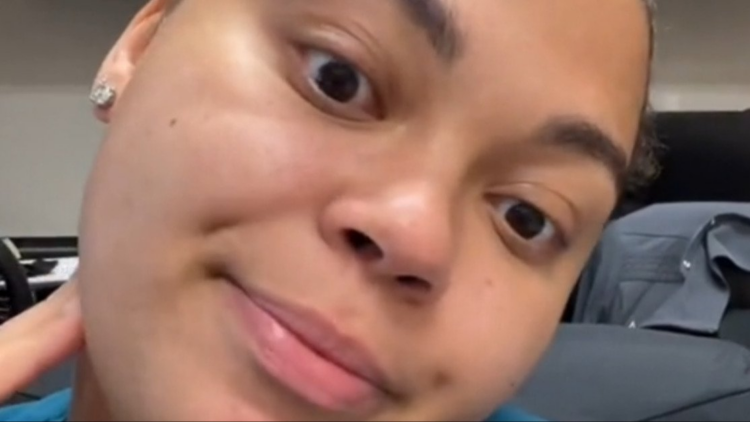For couples who struggle to become pregnant, it often isn’t long before they start considering undergoing in vitro fertilization treatments.
But while clinics that offer these treatments have given many people the chance at parenthood they thought they’d never have, it’s possible for these positive experiences to give the treatments an almost magical reputation.
Unfortunately, that’s not really in step with reality as IVF is an uncertain , expensive , and occasionally messy process that can leave couples walking a more difficult road than they might have expected.
So to help prevent people from getting their hopes up too much and from getting the wrong idea about IVF in general, one embryologist is now setting the record straight on TikTok.
Alease Daniel is a scientist working directly with embryos and egg and sperm samples at a fertility lab in North Carolina.
She noticed that her clinic’s patients often had similar questions they were frequently concerned about so she figured that was true of the general public as well.
That led her to start a TikTok account and to tell Good Morning America about some major myths that have cropped up around her profession.
The first myth that she busts in greater detail here is that infertility is usually the result of a problem with a woman’s egg, as it’s just as possible and likely for a man’s sperm to not connect to that egg as it should.
She also made a point of expressing that both the process of fertility treatments and even how samples are evaluated vary from clinic to clinic.
Since certain quality-assurance certifications aren’t required by law, Daniel recommended checking whether the clinic is certified by the College of American Pathologists and/or whether they report to the Society for Assisted Reproductive Technologies.
Furthermore, clinics vary in how they conduct a process called embryo grading that determines how viable an embryo is for surviving the intense processes the labs subject it to.
This isn’t an exact science so some clinics can be more strict than others, which makes it worth asking how much stock they put in embryo grading.
And of course, perhaps the biggest myth that Daniel recognized the need to bust was the idea the IVF can guarantee a successful pregnancy.
Because although there are some amazing things that are possible through assisted reproductive technologies like IVF, nothing that currently exists can solve all of the potential fertility issues a couple could have with any real certainty.
As Daniel said, “We have lots of patients who have done multiple cycles, multiple back-to-back with their eggs, with donor gametes, and they still don’t have the little one they’ve been working towards.”
Conversely, Daniel also wanted to address a common concern couples tend to have after they hear stories about couples ending up with a baby that doesn’t match their DNA.
Although errors that see IVF clinic staff accidentally swap embryos can occur and Daniel breaks down the possible scenarios for those errors here, she stressed that they’re far less common than those stories might lead people to believe.
But for potential parents who are still concerned, Daniel recommended asking clinic staff about their protocol for chain of custody.
In her words, “If they can’t give you an answer, or they can’t give you an answer that you’re satisfied with, it may not be the best place. It’s really important to make sure that you understand what their protocol is so you can make sure they’re following it.”
h/t: Good Morning America

















































